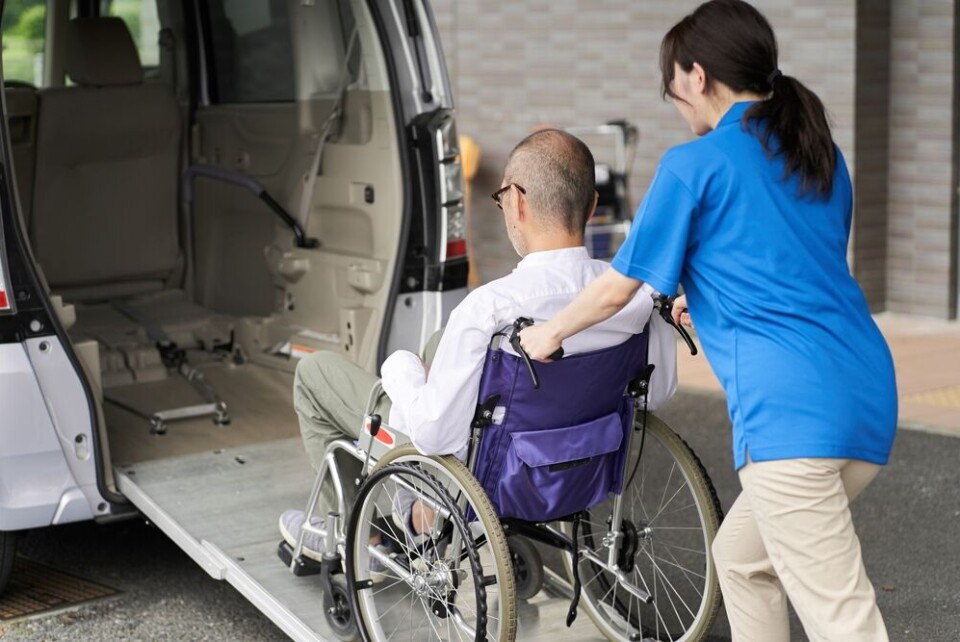-
What is the tontine option for property in France?
Option should be considered if buying for the first time
-
Is it possible to transfer my apartment to my daughter in France?
Gifting only residual ownership is one of many options
-
Can I install a small structure for work use on my land in France? - Partner article
'Garden shed tax' can be levied in certain circumstances
How does hospital and other medical transport work in France?
Some costs can be partially – or fully – covered by social security, though in some cases you will need a prescription

Reader Question: I heard that some people have their travel costs to go to the hospital covered in France, is this true? If so, are there limits on who can apply?
In France, the journeys of some patients to and from non-emergency medical appointments are covered – in part – by Assurance Maladie (social security).
This can include journeys taken on public transport, taxis, ambulances, and even using your own car, where fuel costs can be partially reimbursed.
Since May 2023, the amount covered for these journeys has dropped, however, and to be covered you must usually have a written prescription from a doctor to allow you to benefit. In which case your top-up health insurance may cover all or some of the remainder.
Some people can have up to 100% of their costs covered, depending on their medical situation.
Who is eligible, and how do I apply?
To be eligible for these costs to be covered, you will in most cases need to ask a doctor to write a prescription to cover the transport costs, which will also state the best method of transport for you to attend medical appointments depending on your state of health.
In urgent situations, prescriptions for transport costs may be written after the incident and backdated, providing compensation at a later date.
Reimbursement is not completely guaranteed however, as your doctor or Cpam (local state health insurance body) may not agree that you require a prescription to cover transportation costs.
Generally speaking, you can be reimbursed for:
- Trips to and from hospital, even for out-patient care
- Care related to an ALD (recognised long-term condition) if your health condition means you need you cannot get to the appointment by yourself
- Serious condition where you need to be under surveillance (ie. in an ambulance) or lying down
- Being called in for a an official health check, eg. in relation to being off work sick
- Care linked to a work accident or work-related illness
Prior permission
In some cases you need to obtain prior permission from your Cpam. Your doctor will give you a specific form to send in. This includes:
- Long-distance transport (more than 150km each way)
- Repeated journeys, where you have to do four or more trips of at least 50km each way for the same condition, in a period of two months
- Travel by plane or ship
If you hear nothing after 15 days, this equates to tacit acceptance. If you are refused, you will receive a letter saying so.
Obtaining reimbursement
Send your local Cpam office a copy of the prescription from the doctor, proof of payment and tickets used for the journey (bus ticket, péage motorway toll receipt etc).
In certain situations – such as using a taxi, or driving yourself – an additional form is required (see here).
You can either send in the paper documents, or apply online via your account at ameli.fr.
What is covered?
From May 2023, the amount covered depending on each method of transport is as follows:
- Using your own car: 55% of the price per kilometre is reimbursed. This price is changed annually (set via decree), and for 2023 is 30 cents per kilometre.
- Using public transport: 55% of the price of your bus, tram or metro ticket, or a second-class train ticket.
- With an approved cab, light service vehicle or ambulance: 55% of costs based on the agreed rates applied by the Cpam (taxis must be ‘conventionné’, they will have a blue ‘C’ sticker in the back window confirming this and you can obtain more information about locating one, from your Cpam).
What are the exceptions?
For some people, 100% of travel costs are covered, either temporarily or permanently.
They have to follow the same rules, but will have all of the costs of their journey reimbursed.
Those eligible for full reimbursement are:
- Pregnant women (six months or more)
- Newborns less than 30 days old
- People who have suffered a work accident or occupational disease
- People suffering from a long-term illness (Affection longue durée or ALD)
- Children and adolescents in centres d'action médico-sociale précoce (CAMSP) and centres médico-psycho-pédagogiques (CMPP)
- Beneficiaries of complementary health insurance (Complémentaire santé solidaire or CSS) or state medical aid (Aide médicale de l'État or AME)
Read also
How do French healthcare costs change for long-term illnesses?
Online health account in France: six useful things you can do
























